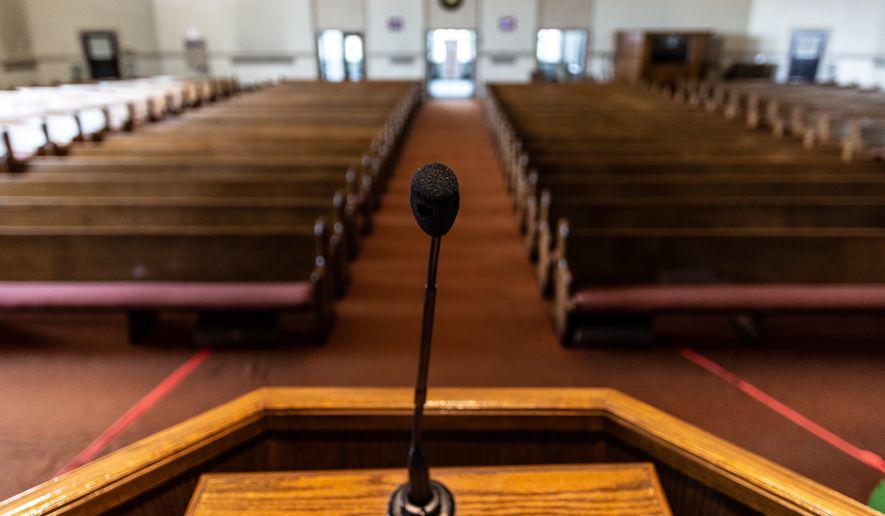A private spiritual foundation in Michigan has released a report hailing innovations that connect the unaffiliated with a faith community’s “heritage,” if not an established organization.
The Fetzer Institute, which says its mission “is helping build the spiritual foundation for a loving world,” released Monday its “Sharing Spiritual Heritage” report — the result of several meetings in which spiritual leaders and unaffiliated persons exchanged ideas.
“For the past few decades, the religious and spiritual landscape in America has been really shifting as fewer and fewer people are identifying with or belonging to a religious tradition,” Michelle Scheidt, a Fetzer senior program officer, told The Washington Times. “We obviously see this happening and recognize the importance of the lineage and the heritage that the religious traditions hold, and also the importance of spiritual life.”
Ms. Scheidt said the institute wants “to find ways for people to continue to connect with their spiritual lives, deepen their spiritual lives. We see that the religious and wisdom traditions, for millennia, have been the holders of spiritual wisdom for humanity.”
The Fetzer report says “spiritual seeking is happening everywhere,” but seekers are often isolated and lack “critical relationships … to sacred stories, practices, one another, elders, rituals, and communities.”
To counter isolation, the institute found rabbis working in innovative Jewish communities, Roman Catholic nuns who have shared decades of contemplative community life and “lineage holders” from multiple traditions who meet “contemporary needs” for spiritual support.
“It is not separate from the tradition,” Ms. Scheidt said. “Many of the leaders who are engaged with us in this dialogue … are clergy themselves, and leaders from within the traditions who are trying to seek new ways to help people connect.”
She said their work in connecting spiritual traditions with seekers outside the ranks of churches, synagogues and mosques parallels similar efforts to innovate in chaplaincy and another with retreat centers across North America.
The goal is to “strengthen these nascent sectors and help create spaces for people to find that which they need in this new religious and spiritual landscape,” Ms. Scheidt said.
Some of the unaffiliated “could” unite with a traditional congregation, but “people are hungry for practices, they’re hungry for connection, [they’re] hungry for meaning and community,” Ms. Scheidt said.
This means, for example, adopting a “technology Sabbath,” in which people disconnect from cellphones and online connections, mirroring the Jewish Sabbath in which the observant avoid technology of all kinds.
Putting away the smartphone for 24 hours, she said, is “a kind of bridging of secular and sacred, it’s a bridging of the lineage and the wealth of wisdom that these traditions hold for us and helping people find meaning in that today.”
The report can be downloaded by registering here.
• Mark A. Kellner can be reached at mkellner@washingtontimes.com.




Please read our comment policy before commenting.